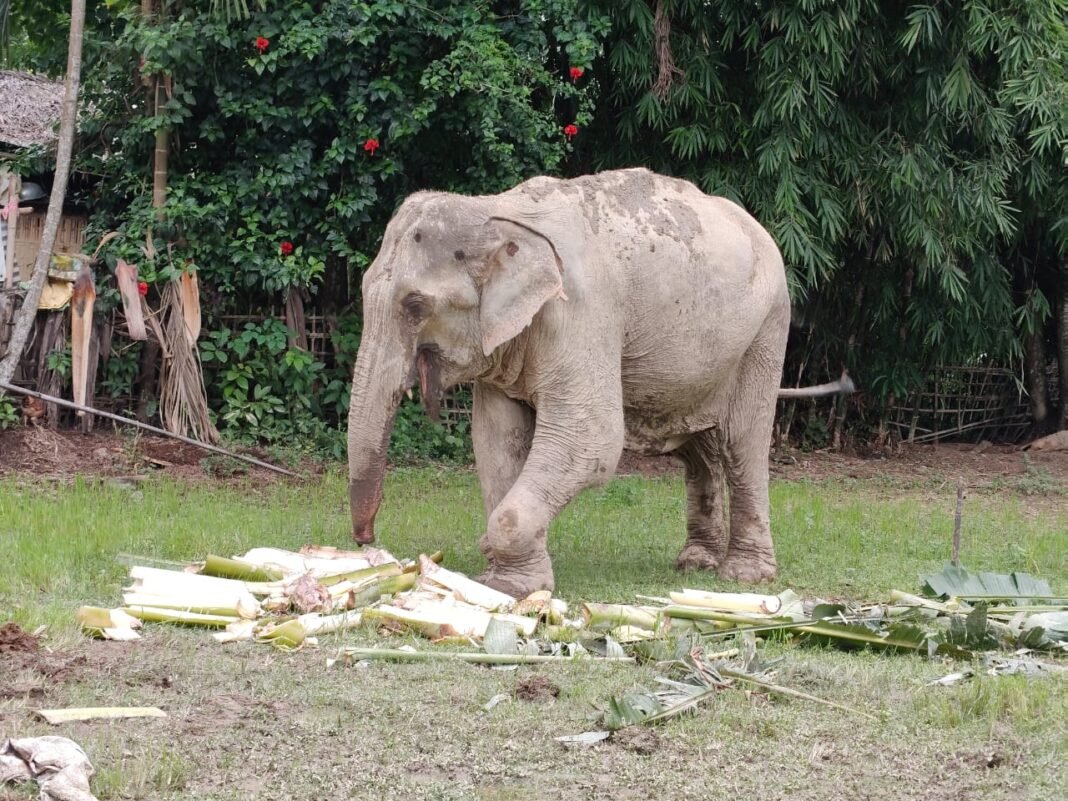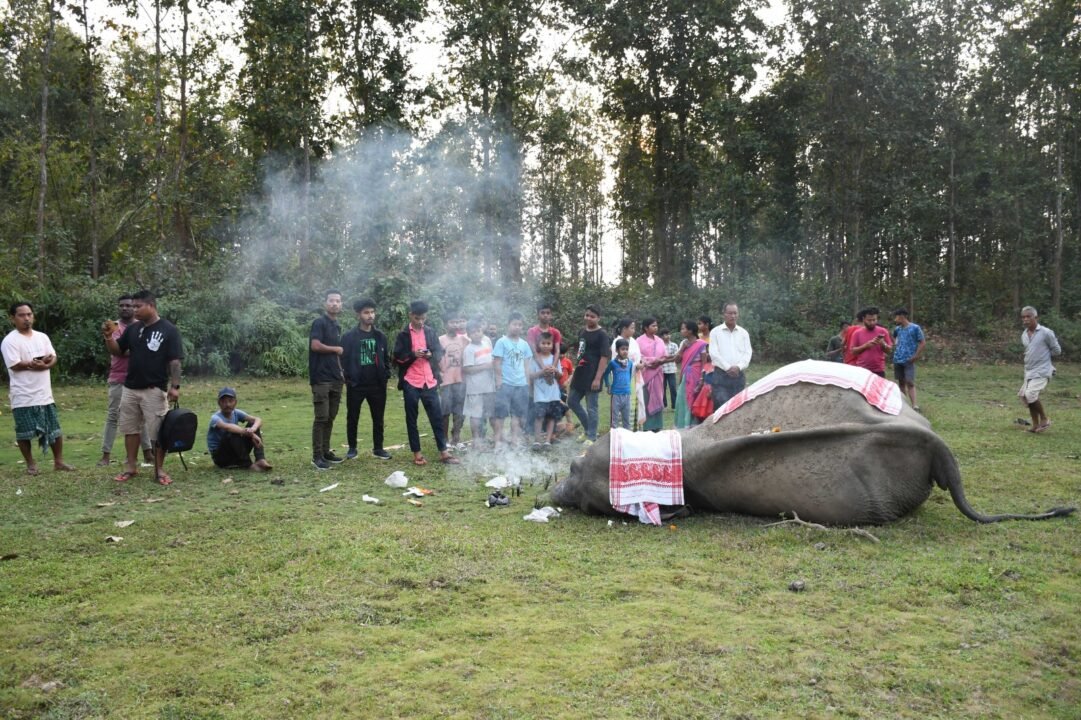HT Correspondent
DIBRUGARH, Aug 7: Widespread public outrage has erupted in Assam following the circulation of a viral video showing a visibly injured 48-year-old elephant, named Maniki, being forced to walk along a highway in a severely compromised condition.
The footage, which quickly drew condemnation from wildlife enthusiasts and conservationists across the state, shows the elephant limping painfully on a bent foreleg as a mahout rides on her back.
The elephant was being taken from Kakopathar in Tinsukia district to Dibrugarh—a distance of nearly 95 kilometres—for medical treatment.
However, the journey was undertaken on foot in violation of clear directives issued by the forest department, which had mandated transportation of the injured animal by truck to avoid further stress and suffering.
The injured elephant belongs to Ruchi Chetia of Jorhat.
Officials confirmed that Chetia disregarded forest department guidelines in choosing to force the elephant to walk the arduous route.
Maniki had sustained a serious leg injury two years ago in Arunachal Pradesh, when a heavy wooden log fell on her left foreleg.
Though treatment was initiated at the time, the injury resulted in a permanent deformity and chronic limping, severely limiting her mobility.
Speaking to reporters, mahout Pradip Moran revealed that the journey began nearly a week ago.
By the sixth day, Maniki had only managed to reach Makum, covering just 36 km of the intended route.
Her condition continued to deteriorate during the march, prompting a local resident, Krishna Majhi, to intervene.
Majhi offered shelter to the elephant at his residence on August 6, where she was allowed to rest.
The distressing visuals of the elephant’s condition triggered immediate intervention from the authorities on Thursday morning.
A coordinated team comprising district officials, forest department personnel, veterinarians, and local environmental activists visited Majhi’s premises in Makum to assess the animal’s condition.
The medical team administered medication and began preliminary treatment at the site.
Following a thorough medical evaluation, the forest department, in coordination with the district administration, ordered a mandatory three-day rest period for the elephant.
Officials also directed the owner to arrange for suitable vehicular transport for the remainder of the journey, ensuring proper medical supervision en route.
In a change of plan, authorities confirmed that the elephant would now be taken to either Kaziranga or Guwahati, where advanced treatment facilities are available for large animals.
The incident has sparked serious concern regarding the implementation and enforcement of wildlife welfare regulations in the state.
Officials have indicated that legal action against the elephant’s owner is under active consideration for endangering the animal’s life and violating prescribed transport protocols.
The episode has highlighted persistent gaps in animal welfare enforcement, especially in cases involving captive elephants used for logging, tourism, or ceremonial purposes.
Conservation groups and citizens alike have called for stricter monitoring of elephant ownership and transport practices, along with stronger penalties for violations.
As Maniki rests under veterinary supervision in Makum, her plight has become a powerful symbol of the urgent need to uphold animal rights and ensure compassionate, science-based treatment of injured wildlife.












